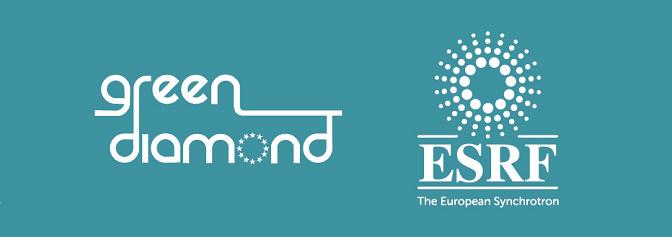Collaboration with Green Diamond Project

Related topics: lab-grown diamonds, synthetic diamonds, HPHT diamonds, single-crystal diamond plates, diamond anvils, diamond lenses, CVD substrates, diamond electronics, diamond optics, diamond conference
GreenDiamond aims to fabricate the first high power electronic device with diamond that is competitive with incumbent wide-band-gap semiconductor materials and technologies, opening new commercial and industrial opportunities.
Approximately 30% of all electrical power generated utilises Power Electronics somewhere between the point of generation and its end use [1]. This is expected to rise to as much as 80% by 2030. Even with state-of-the-art electric equipment, the transformation of the electrical energy occurs with significant losses (9% in Spain for example [2]) because available semiconductors are not ideal for high power. In future smart grids involving delocalized renewable energy sources, these energy losses become even more important, as power electronics are needed throughout the grid to monitor and control the ever-changing supply and demand of low-carbon electricity transiting through the grid. The key to the efficient transmission and conversion of low-carbon electrical energy is the improvement of power electronic devices, which must be durable and reliable in high power environments to eliminate the need for auxiliary systems. Green electronics, i.e. highly efficient electronic devices are crucially important for our future energy system as they will increase the efficiency of electricity production and distribution.
Silicon is a well-established starting material that has been addressing the requirements of energy conversion for more than 50 years. It is widely recognised that the real step-improvement in Power Electronics can be obtained by employing devices based on wide bandgap semiconductor materials. Wide bandgap semiconductor materials have superior electrical characteristics compared to silicon. Power electronic devices based on wide bandgap semiconductor materials will result in substantial improvements in the performance of power electronics systems in terms of higher blocking voltages, improved efficiency and reliability, as well as reduced thermal requirements, leading to realisation of more efficient “green electronic” systems.
Among wide bandgap semiconductors, diamond is considered to be the ultimate semiconductor for applications in high power electronics due to its exceptional electrical and thermal properties. Its dielectric breakdown strength is 3 times higher than in SiC and more than 30 times better than in Si, the carrier mobility is very high for both carrier types and the thermal conductivity is unsurpassed. Moreover, with the development of diamond CVD growth in the 80s, electronic grade single crystals became commercially available.
Diamond devices are, however, still research topics and not commercial products. The main reason is that there are not enough activated carriers at room temperature, leading to poor device performance. Researchers tried to circumvent this low ionisation by doping the surface with hydrogen, or by quantum confinement into delta structures, but without clear success, at least for high power transistors. The best solution would have been to use a top gate to control the carrier density, as in a conventional Metal Oxide Semiconductor (MOS) transistor, but all attempts to realise this failed because of a too high density of electronic states at the interface between diamond and the insulator, preventing the control of surface potential.
Members of the GreenDiamond consortium however recently succeeded in overcoming this difficulty, and a MOS structure in inversion regime on diamond was demonstrated for the first time with diamond [3]. It is now possible to control the density of holes and electrons in diamond with a gate voltage. This breakthrough, combined with the recent progresses in wafer processing, opens the door for fabrication of electronic devices taking advantage of exceptional properties of diamond.
In the future, all high voltage applications should benefit from the higher efficiency, durability and reliability of diamond devices, reducing significantly electrical losses, overall system complexity and improving reliability. The GreenDiamond technology is inherently safe, non-toxic and its precursor, carbon, is abundant and can be made from renewable sources.
-
GreenDiamond will advance the TRL of energy technologies that will form the backbone of energy systems by 2030
-
New contributions to the energy challenge in Europe and worldwide
-
More efficient, low-carbon electricity production and distribution
-
Power Electronics will contribute to the low-carbon society via energy efficiency
-
Improve innovation capacity by bringing together the know-how of technology providers, industrial manufacturing equipment developers, analytical partners and end-users
The project also has a focus on HVDC (high-voltage direct current). Its successful completion is expected to increase the reliability and operating lifespan of components, considerably improve power-electronic device performance, and reduce initial and maintenance costs.